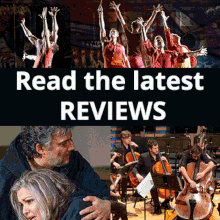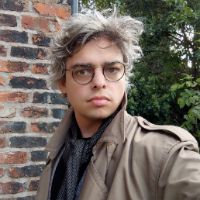It can be strange to think of conductors as a community. They are almost by definition lonely individuals. But attending the first day of the Donatella Flick LSO Conducting Competition, this community of young conductors is immediately apparent. Many of the twenty candidates already know one another. They have been through things like this before.
Founded by Donatella Flick in 1990, the competition is one of the more prestigious parts of a circuit of workshops, masterclasses and competitions for young conductors, frequently becoming a key part of their early careers. It means that the candidates already know the insanity of being asked to rehearse for tiny amounts of time – in this case, fifteen minutes – with an orchestra they must immediately impress, and in front of an intimidating panel of judges.
The contest is spread over three intense days with the orchestra. I manage to speak to the eventual winner, Nicolò Foron, the two other finalists, Jakub Przybycień and Jiří Habart, as well as several other participating conductors.
On the first day, the twenty participating conductors must be summarily whittled down to ten survivors. French conductor Nathanaël Iselin was last to have time with the orchestra. “In half an hour, maybe you have the opportunity to shape a rehearsal,” he says, “but in fifteen minutes, you really haven’t got much. You have to inject energy. It’s hard to know whether to simply play, or whether to stop and shape.” Iselin certainly injected energy – the orchestra, despite being exhausted at the end of a long day, immediately perked up in playing the finale to Mozart’s 39th Symphony.
I also catch Czech conductor Jiří Habart at the end of the first day, as we wait for the panel’s decision to be made. He has really found his stride – and conducting the orchestra in a green turtle-neck he had a clear panache. “I found it completely natural. I was expecting to be more stressed, but it was more stressful waiting for my slot than rehearsing with the orchestra.”
For the handful of students and other onlookers present on the first day, the atmosphere is less like a normal rehearsal than something like Crufts. The candidates are walked out to the orchestra and then walked away again. Impressions have to be immediate. Like speed dating, the format lends itself to instant reactions – one has to be careful not to lapse into prejudice.
There are no clocks in LSO St Luke’s. Radio broadcasting studios, like the BBC’s in Salford and Maida Vale, are almost oppressed by the prominence of their clocks. In the orchestral world, time is extremely expensive. But St Luke’s is a converted church, and also doubles as a concert space. For the conductors, it is an intoxicating environment, and easy to find themselves at sea in orchestral swells.
The candidates have to be frequently disabused of this intoxication. Heading up the judging panel is LSO’s Chair and principal second violin David Alberman – a grave and stoic figure, who after six minutes or so rises like a gryphon to announce how much time the candidate has left, accurate to the nearest second. When the fifteen minutes are almost over, he processes slowly to the podium, to inform the candidate that the time to depart has come.
On the first day, it is a classical-sized orchestra, of double woodwinds. They are performing the aforementioned Mozart 39, Beethoven’s Eighth, and Prokofiev’s Symphony no. 1. With twenty conductors, there are twelve movements to choose from (each candidate must rehearse two), but notably the fearsome finale of the Prokofiev is avoided. No one tackles it apart from Brit Matthew Rhodes.
Matthew makes it through to the second day, along with nine other candidates, where he is to conduct the Shostakovich Cello Concerto no. 1 with the LSO’s new principal cello David Cohen as soloist. (Candidates are randomly assigned either this or the Mozart Clarinet Concerto with principal clarinet Chris Richards.) I catch up with Matthew the following day – after being knocked out before the final round. “Twenty people come, and you know that, chances are, you’ll be among the 17 that don’t get to the final, or the 19 who don’t win. So there’s no point just coming for the competition, you have to come to take something away from it.”
“I know Sian Edwards quite well,” he says, “and speaking to her after, I asked ‘what were the things that I could improve from yesterday?’ And one of them was: when you’re working with a soloist, it isn’t just about serving their wishes, don’t be afraid of making it into a collaboration, a partnership.”
Edwards is one of the judging panel. Known for her long association with English National Opera, she is Head of Conducting at the Royal Academy of Music. As often with music competitions, judges can be familiar with the participants – the eventual winner of the competition, Nicolò Foron, has been a conducting student at the Royal Academy of Music.
Even so, Foron was clearly a standout candidate in the first round. Bright, energetic, friendly with the orchestra, he captures the lightness of the Mozart well, and later in the Prokofiev looks for something “cubistic” (his term) and modernist, rare among the candidates.
On the final day, the three candidates have two 50-minute rehearsals with the orchestra, and finally everyone can breathe. They are the German-Italian Nicolò Foron, Pole Jakub Przybycień, and Czech Jiří Habart (my instincts about him on the first day were well-placed). I am disappointed that a woman conductor does not progress – as there are several likely candidates. But these young men are clearly fluent and capable.
I catch up with Jakub Przybycień midway through the first day. I ask if he has conducted in the UK before. “No! This is my very first British orchestra. I played in the European Union Youth Orchestra for many years – I’m a violinist – and also the Britten Pears Youth Orchestra, so I had some contact with British musicians and orchestras. But I never conducted any of them.”
There’s an extraordinary moment in his rehearsal of Grieg, Åse’s Death from Peer Gynt, where Przybycień’s hands fall to his sides, and he leans against the back of the conductor’s podium. I see no one else do this at all. The sound is luminous. “I think it comes with trust,” he tells me afterward. “A few years ago I wouldn’t necessarily trust myself to do it. But if you’re standing in front of this wonderful orchestra, you trust them completely. I wasn’t stopping, I was saying, let’s try to go to a completely different world. We entered it – they found it.”
I catch Jiří Habart’s rehearsal in the morning too, he is rehearsing Berlioz’s Symphonie fantastique. The orchestra by this point has grown enormous: 14 first violins, two tubas, two timpanists. Not just that, but Sir Antonio Pappano is sat behind the podium – and at one point he starts to help (or micromanage, depending on your view) Habart rehearse.
I’ve grown to like Habart – this is his first time rehearsing in the UK too. When I imagine what it must be like, to rehearse in a second language with all this gargantuan pressure, his composure and musicality is breathtaking. It was also his first time conducting the Symphonie fantastique. “I never even studied the score before,” he says. “All the movements are difficult for the conductor, many transitions, unexpected changes, and so on – but I felt that the orchestra likes this music. They react very well.” His ability with the orchestra is all the more remarkable given that he “didn’t sleep, didn’t eat, I don’t know, maybe stress or something!”
Habart and Przybycień are deft, capable, graceful and talented. But from watching Foron’s rehearsals, he simply seems to have a greater wealth of experience to draw on. The orchestra appear to know him already. While only 25, he has been conducting orchestras since the age of 11. At this point, his rehearsals are almost military exercises – he has an intuitive understanding of the orchestra not only as a musical organism, but as a professional body.
Rehearsals typically begin with a run-through, after which he has a small conversation with the section leaders and concertmaster. This allows the orchestra to settle, to catch their breath and assess their own playing. “This orchestra is so good that they just need inspiration I think, a seed planted, and that’s it,” he tells me later in the day. “The rest I think they don’t really need. And that’s why I’m doing this, to give them a head-start... I want like a domino effect. But I have also to be careful because for me every musician is equally important.”
Foron has been fortunate to be assigned the thunderous last movement of Symphonie fantastique, meaning that he will conclude the concert. He begins his rehearsal with a run, and the orchestra already sound phenomenal. He then proceeds backwards through the movement, clearing up moments here and there. He is familiar enough with the score that he barely has to look at it, and when he needs to give a note to the orchestra, he deftly turns over the corner of a page of his score to remind himself.
To add to his good fortune, he also ends up beginning the concert too, being the first of the three candidates to conduct the Prelude from Tristan und Isolde. But Foron’s Tristan is overwhelming in rehearsal. I can recall nothing like it. He smartly decides to rehearse the ending first, before doing a run. It means that all the technical details are cleared up beforehand, allowing the orchestra to fully expand into a remarkable performance at the end of the rehearsal.
“I’m actually really surprised myself,” he says. “I rarely have this, but I felt I got completely lost. I don’t know what happened. I have to say, I love Wagner, I have a little bit of experience with his operas, but it was very surreal. I kind of understand now why people think it’s almost too impactful, as music.” Like a drug, I say. “It’s insane! I didn’t plan this, maybe that’s why it happened.”
The winner is announced by the Duke of Kent after the evening’s concert, and an exhausting three days. Foron doesn’t look like the typical conductor. He is more a mixture of a mathematics graduate student and a bank manager’s son. But he has a clear charisma of his own. Classical musicians are all closet nerds, and I think his idiosyncrasy puts us at ease. Besides, his musicality is effortless, and it is coupled to a clear professionalism. He is going places.
The Donatella Flick LSO Conducting Competition 2023 ran from 21–23rd March. The final concert is available to stream on Medici.tv. This article was sponsored by the LSO.




